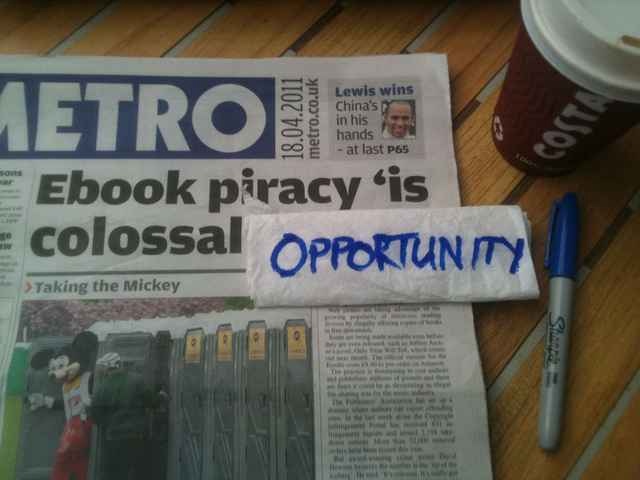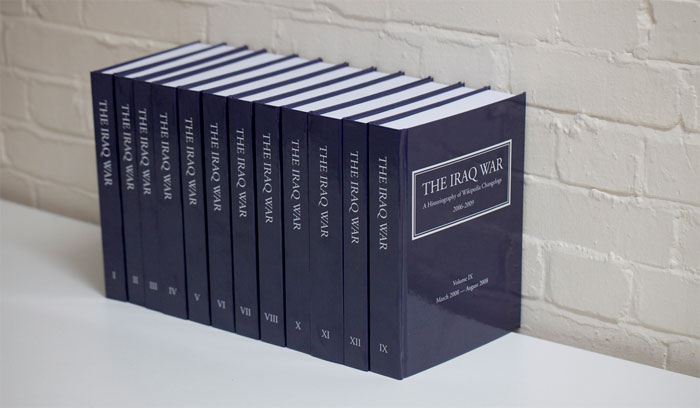The Piracy Project is an international publishing and exhibition project exploring the philosophical, legal and practical implications of book piracy and creative modes of reproduction. This project is developed by Andrea Francke, Lynn Harris and Eva Weinmayr. Last week, on the 5th of May, James Bridle gave a speech which was entitled “The New Pierre Menard: digitisation and everything after” – James Bridle is also a speaker on the coming Unbound Book Conference, to be held next week.
James Bridle is a publisher, writer and artist based in the UK. One of his projects is research on Wikipedia in relation to the Iraq War:
This particular book—or rather, set of books—is every edit made to a single Wikipedia article, The Iraq War, during the five years between the article’s inception in December 2004 and November 2009, a total of 12,000 changes and almost 7,000 pages.
So during the Iraq War all the edits on the Wikipedia page devoted to the war were collected and brought together in this huge collection of books. According to Bridle, Wikipedia is a useful subset of the entire internet, and as such a subset of all human culture. In his eyes this is historiography – history as a process – instead of just a set of “facts”: history written by the victors. You can see more on: http://booktwo.org/notebook/wikipedia-historiography/
In the sessions Future Publishing Industries & Digital Enclosures of the Unbound Book Conference, conventional and digital publishing will be featured subjects. Bridle will speak during the session “Future Publishing Industries“. One of the key questions is how to organize valuable pieces of information, especially in order to serve the next generations. The unconventional notion of the book is changing rapidly. Unknown is what new forms of organizing information do to the concept of “bookness”. What is the digital equivalent of the book as aesthetic object? How will new players, like the companies: Amazon, Google & Apple influence the field?
For more information see: http://www.art-agenda.com/shows/and-publishing-announces-the-piracy-lectures/




